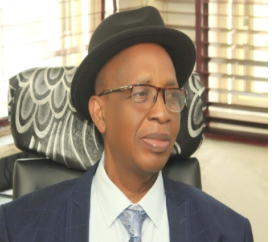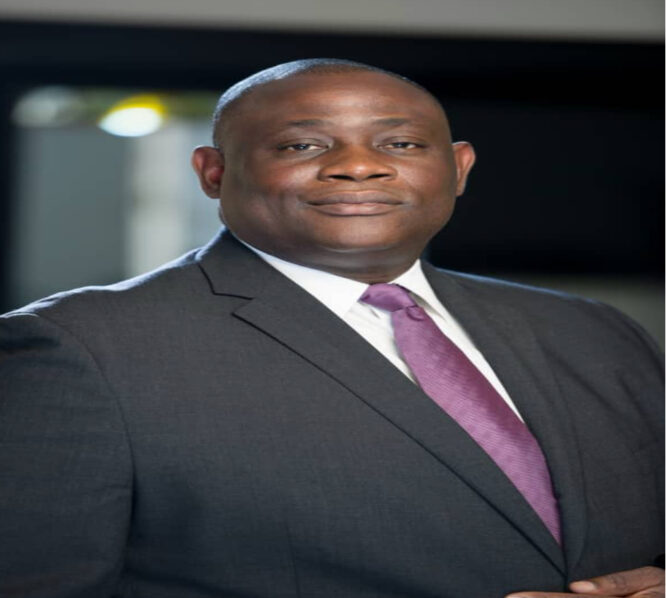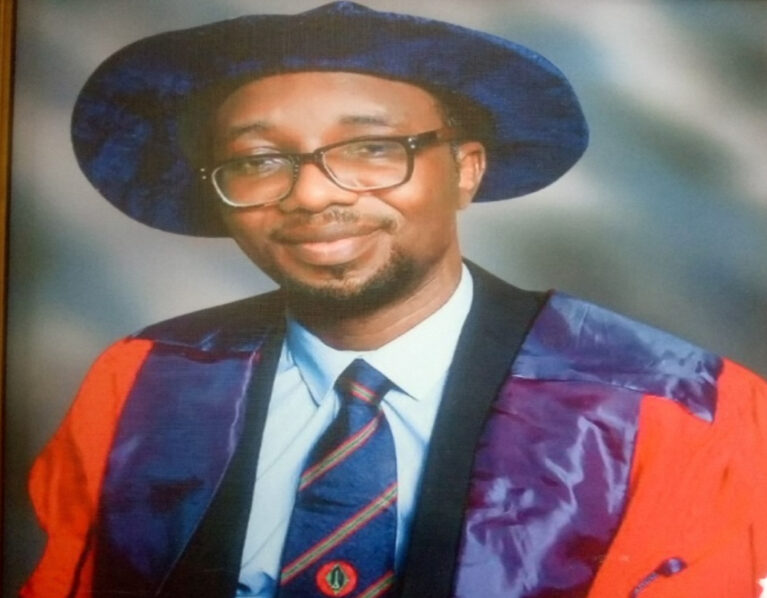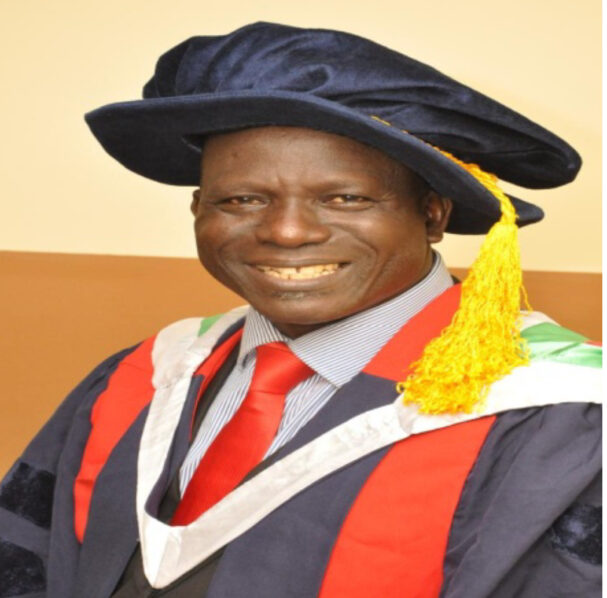Struggling with infertility due to medical conditions can be emotionally challenging for couples. In Nigeria, the burden is further intensified by societal, cultural, and religious expectations. However, fertility clinics bring hope and relief, offering solutions that help couples become parents.
Through their success stories, many fertility clinics have shattered misconceptions surrounding infertility. By providing state-of-the-art treatments and supportive care, these clinics have revolutionized the lives of numerous individuals, enabling them to realize their dreams of building a family.
However, with an increasingly growing number of fertility clinics, couples face a daunting task in selecting a trustworthy clinic amidst high costs of Assisted Reproductive Treatments, and emotional risks. A reputable clinic stands out by offering cutting-edge technology, expert care, and a commitment to excellence, ultimately providing hope and confidence to those navigating the complexities of infertility. In this special report, The Guardian is featuring selected fertility clinics with remarkable accomplishments through assisted reproductive treatments.

Dr. Abu H. Alasa ( MB.ch B; FWACS, FICS, Chief Consultant O&G)
Chairman/Director, Kings Care Hospital, Abuja.
Kings Care fertility, Bringing a Lifeline of Joy to Families.
For many couples, building a family is a natural part of life. However, for those struggling with infertility, the journey to parenthood can be emotionally challenging and seemingly impossible. That’s where fertility clinics like The King’s Care Invitro Fertilization Unit come in – offering hope, advanced technology, and compassionate care.
Situated in the federal capital territory of Abuja,The King’s Care Hospital embodies a profound philosophy: every couple deserves the chance to have a child, regardless of age, medical, or social factors. With cutting-edge technology and expertise, they’ve successfully overcome common fertility hurdles such as low sperm count, abnormal sperm morphology, and azoospermia.
Their comprehensive services include sperm donation, freezing, and banking, as well as egg donation, freezing, and embryo freezing and donation. Intra-uterine insemination and ovulation simulation and fertilization control are also regular practices at the center.
The King’s Care team has brought smiles to countless homes, fostering families through their tireless efforts. Their commitment to helping couples achieve their dreams is a testament to the power of medical innovation and empathy.
Fertility clinics have revolutionized the way we approach reproductive health. They provide emotional support and guidance, offer personalized treatment plans, and harness advanced technologies like IVF, ICSI, and PGD. These clinics address underlying medical conditions, facilitate egg and sperm donation, and enable family building through surrogacy.
For those struggling with infertility, fertility clinics shine a light on what may seem like a dark journey. They remind us that you’re not alone, there’s always hope, and medical advancements can overcome seemingly insurmountable obstacles.
The King’s Care Invitro Fertilization Unit stands as a testament to the transformative impact of fertility clinics. By combining medical expertise with compassion, they’ve helped countless families welcome precious new life.
For someone struggling with infertility, remember: hope is just a step away. Consult with fertility specialists, explore available options, and hold onto the promise of building a loving family.
Embark on your journey to parenthood with confidence, knowing that fertility clinics like The King’s Care Hospital is dedicated to making your dreams a reality.

Dr.Richardson Ajayi (FRCOG, FWACS, CDir.) Founder/Director, Bridge Clinic
PROFILE
Dr. Richardson Ajayi, the founder of Bridge Clinic, is a Gynaecologist with over 25 years of experience as healthcare professional and in management. Dr. Ajayi is a fellow of the Royal College of Obstetricians and Gynaecologists and an alumnus of the HBS Owner/President Management Program. He was invited to be a member of the Young President Organisation (YPO) in 2011.
Along with being on the board of numerous healthcare-related companies, Dr Ajayi established Pathcare, now SYNLAB (Europe’s largest medical diagnostics provider). PathCare, a member of SYNLAB, was the first in Nigeria to achieve ISO 15189 Accreditation, from SANAS (MO224).
Dr Ajayi set up Therapia Health to consolidate the healthcare portfolio of Bridge Clinic and Pathcare, a member of SYNLAB, as a joint venture, to expand to include other companies that will complement the development of an integrated healthcare ecosystem within Nigeria.
He is well-published with many scientific papers and book chapters on infertility management with a particular focus on quality management and ethics of IVF.

Dr. Paul Faduola
PhD EMA CBiol CSci FSAB FIMC
Founder/Chief Scientific Director, Androcare Fertility Centre, Lagos.
There is a Need for AFRH to Raise Inclusive IVF Center’s Operation Standards for Efficient Service Delivery, Says Dr. Faduola.
Dr. Paul Faduola, the Chief Scientific Director and Founder of Androcare Fertility Centre, discusses the challenges and solutions in Nigeria’s fertility landscape. In this interview with The Guardian, he shares insights into achieving success through In Vitro Fertilisation (IVF) and the need to raise operational standards for fertility practices in Nigeria. Excerpts…
Fertility struggles can be a sensitive topic for many. How is Androcare Fertility Centre providing support to those in need of fertility treatment in Nigeria?
At Androcare, we understand the emotional toll infertility can have, especially given the socio-economic realities in Nigeria. One of the most reliable ways to address infertility is through IVF, but it is costly. Setting up and running a top-tier IVF center requires significant investment. While there are many fertility clinics in Nigeria, not all are fully equipped or qualified to deliver the desired results.
There are minimum standards set by the Association for Fertility and Reproductive Health (AFRH) to run a fertility practice in Nigeria, but, in my experience, these standards are too basic. For example, a clinic may have an incubator and basic equipment and claim to run an IVF practice, but they might not have the necessary tools, like an ICSI (Intracytoplasmic Sperm Injection) machine, to handle complex cases like low sperm count. Patients are often unaware of these gaps and may not receive the best care, leading to negative outcomes. This compromises the credibility of IVF services in the country.
At Androcare, we believe that a proper IVF practice requires more than the minimum standards. It’s about having the right equipment, backup systems to counter the frequent power outages, and above all, having the patient’s best interest at heart. Sadly, some practitioners are more focused on profit than on patient care, which creates challenges in maintaining fair pricing and quality.
Can you tell us about some of the innovative services and solutions you offer that contribute to your success rates?
At Androcare, we strive to exceed the norm. We’ve implemented ISO standards, including ISO 9001, and are working towards ISO 15189 for quality in laboratory management. These standards ensure that the services we offer match those provided in Europe and the U.S.
Some of the recent innovations we’ve introduced include; the IVF Witnessing System, a technology designed to eliminate errors during the IVF process by ensuring that the right sperm is used with the right egg for each patient. This system is not yet common in Nigeria, but we’ve introduced it to enhance accuracy and build patient trust. Preimplantation Genetic Testing for Aneuploidy (PGT-A): This test helps identify chromosomal abnormalities in embryos, improving the chances of a successful pregnancy. Non-invasive Preimplantation Genetic Testing (niPGT-A): This cutting-edge technique allows for genetic testing of embryos without the need for a biopsy, offering a safer option for patients. Intracytoplasmic Morphologically Selected Sperm Injection (IMSI): A more advanced form of ICSI, where sperm is selected based on detailed morphology to improve fertilization rates. Laser-Assisted Hatching: This technique involves using a laser to help embryos hatch from their shell, increasing the likelihood of implantation.
What are some challenges you face in providing services to patients, and how do you work around them?
I’m passionate about leveraging technology to drive processes, but it’s expensive to implement. Most of the equipment and consumables we use are imported from Europe and the U.S., and yet we offer IVF services for less than $2,000 here, compared to $10,000 to $20,000 abroad.
There’s a financial sacrifice involved because I want to provide the same high standard of care as international clinics, even though patients here cannot afford the same fees. If I were only focused on profit, I wouldn’t make the necessary investments. Many of our clients come from countries like the U.S. and the UK, where they are familiar with the cost of IVF, and when they see the standards we maintain at Androcare, they are often impressed that we meet or even exceed those standards.
How is Androcare Fertility Centre helping to address misconceptions surrounding infertility and assisted reproductive treatments?
We spend a lot of time educating our clients about the IVF process. Misconceptions abound, and many people think that IVF success rates are unpredictable, quoting figures like 50-50 or 60-40. The truth is, the success of IVF is tied to several factors, especially a woman’s age and the quality of her eggs.
For example, at age 18, around 90% of a woman’s eggs are chromosomally normal, while at 35, that number drops to 30%. These percentages directly affect the success rate of IVF treatments. By educating our patients about these statistics and helping them understand their personal situation through baseline investigations, we empower them to make informed decisions.
How do you provide emotional care to patients and couples struggling with infertility during their treatment journey?
Emotional support is crucial in fertility treatments. At Androcare, we have psychotherapists on staff who conduct psychological assessments at the start of treatment to identify any emotional needs our patients may have. Based on the results, we offer continuous emotional support before, during, and after the IVF process. This helps our patients manage the stress and anxiety that can come with infertility treatments.
How do you measure success rates at Androcare Fertility Centre, and what factors contribute to your high success rates?
We measure success by live births, not just pregnancies. A successful delivery is the ultimate goal. High success rates come from making the right decisions at every step. Our role is to advise patients on the best course of action, but the final decision is always theirs.
We guide our patients through the entire process, from choosing the best treatment plan to following through on their decisions. A well-informed patient who makes the right choices will significantly increase their chances of success.
What’s your favorite success story so far, one that seemed to defy the odds?
There have been many remarkable stories, but a few stand out. One was a woman who had been trying for 19 years to conceive. After transferring three embryos during her IVF treatment, she successfully delivered quadruplets. Another memorable case involved a couple where both partners were A.S. (carriers of the sickle cell trait). The husband was in the U.S. and the wife in Nigeria. Their marriage hinged on having a healthy baby without the sickle cell disease, so we performed IVF with Preimplantation Genetic Testing for Monogenic disorders (PGT-M) to ensure that the embryos were not affected. Thankfully, the treatment was successful, and they welcomed a healthy baby.
Given that fertility treatments are expensive, how does Androcare help couples manage the financial burden?
As I mentioned, my primary motivation is not profit. If it were, I wouldn’t make the sacrifices necessary to maintain the high standards we do. While we can’t always accommodate every patient, we do our best to work with couples to make treatment as affordable as possible. We often stretch our resources to help clients undergo treatment because we are committed to helping them achieve their dream of parenthood.
What do you see as the future of fertility treatment in Nigeria? How do you think the field will evolve?
The future of fertility treatment in Nigeria should be focused on raising operational standards across the board. I look forward to a more regulated industry where clinics that claim to be IVF centers meet stringent requirements and aren’t allowed to operate without the necessary equipment or expertise. Additionally, there needs to be better regulation of donor cycles to ensure that only high-quality eggs and sperm are used. Right now, some donors go from clinic to clinic, providing low-quality gametes driven more by financial gain than rendering help.This problem can be addressed through the creation of a centralized, digital donor registry powered by blockchain technology or cloud-based databases, managed by regulatory bodies like AFRH or through a network of fertility clinics.
Each donor would be assigned a unique digital ID or QR code linked to their medical and donation history. This data would be stored securely on the blockchain or a cloud platform, ensuring privacy and preventing tampering. Clinics would have access to this registry, enabling them to quickly scan or input a donor’s ID to retrieve information such as prior donations, medical history, and donation frequency.
Why should couples choose Androcare Fertility Centre? What sets you apart from other clinics?
I don’t spend time convincing clients to choose us. Instead, I invite them to visit the center, ask questions, and see for themselves. Once they do, they often feel confident enough to register for treatment. Our commitment to quality care, innovation, and patient-centered service speaks for itself, and it’s why we stand out from the crowd. We are dedicated to providing a world-class IVF experience right here in Nigeria.

Dr. Chidinma Magnus Nwogu
(FMCOG, FWACS, FWACOG, FICS, ART-cert-ESHRE, F-ART, FMAS, FIMC, FIMS)
Medical Director, Kingswill Specialist Hospital.
How Kingswill Specialist Hospital Is Pioneering Innovative Solutions In Assisted Reproduction
Dr. Chidi Nwogu is the Medical Director of Kingswill Specialist Hospital Limited, a top fertility clinic based in Amuwo-Odofin, Lagos. In this interview, he talks about the innovative, ground-breaking solutions they offer, shattering misconceptions surrounding infertility, working around the financial burden of IVF and how they are reversing medical tourism in IVF treatment.Excerpts…
Fertility struggle is a sensitive topic for many, how is your clinic working around this to provide succour to those that need fertility treatment in Nigeria?
We provide top-notch cost effective efficient fertility solution with empathy void of guilt thereby limiting treatment attempts before achieving conception.
Tell us about some of the innovative services and solutions you offer that give you your success rates?
Detailed individual evaluation is essential for successful IVF treatment. This starts with carefully listening to the patient’s history and fertility journey, good examination and investigations. Ultrasound scan evaluation for example helps identify those with fibroids who might be unaware some of which may require treatment for such before IVF treatment. Our endoscopic evaluation where necessary either by laparoscopy, hysteroscopy or both may identify problems with the fallopian tubes or inside of the uterus beyond the regular visualization of ultrasound scan which may require intervention. The use of high quality mostly branded drugs is also a key feature of our IVF treatment. Our state of the art well equipped embryology laboratory has proven to be a worthy investment with the latest RI Integra 3 ICSI machines combined with dedicated skilled and well exposed staff.
Being amongst the early IVF centres to offer pre-implantation genetic testing (PGT) services alongside IVF for certain categories of patients offers succour to couples with incompatible genotypes thereby avoiding birth of a child affected with sickle-cell. PGT-IVF also helps prevent the birth of a child with Down syndrome, albinism and some other genetic and chromosomal diseases especially amongst couple who are known to be at risk either based on genetic statuses or from previous birth of an affected child. PGT-IVF apart from having a higher success rate, has a lower chance of miscarriage and pregnancy complications. The PGT-IVF service has also allowed for family balancing (gender/sex selection IVF) through which couples could have the child of their desired gender thereby avoiding continuous pregnancies by trial and error. Our genetic laboratory boasts of the next generation sequencing machine (NGS) manned by internationally exposed genetic scientist overseeing a fully automated clinically validated workflow for reproductive purposes.
What are some limitations/difficulties you encounter in rendering service to patients and how do you work around them?
Limitations centres mostly on issues of affordability of treatment and acceptability of treatment of preferred treatment options.
Infertility is not selective with regards to social class and as such there will be patients in need of treatment who unfortunately cannot afford it which is an affordability limitation. There would also be patients with infertility where the medically suitable treatment option is in conflict with their personal, traditional, religious and moral convictions about assisted conception. There are various aspects of fertility treatment options which some people would go against requiring extensive counselling and enlightenment to correct such acceptability limitation.
Tell us some of the ways Kingswill Specialist Hospital is helping to shatter misconceptions surrounding infertility and assisted reproductive treatments?
The clinic on its own and in collaborations with body of fertility centres regularly participate in fertility awareness campaign using such opportunities to enlighten people on assisted conception and correct wrong perceptions. We also seize opportunities during health enlightenment especially those organized by faith-based organizations as the easiest avenue to correct various religious misconceptions surrounding assisted conception.
How do you address/provide emotional care to couples struggling with infertility on their treatment journey?
We have dedicated staff well trained in the act of counselling and emotional intelligence across the various units where patient contact or interface occur prior to, during and after treatment including follow up contact after treatment.
How do you measure success rates, and what factors contribute to high success rates?
We have gone beyond measuring success by just mere having a positive pregnancy test a few of which may unfortunately end as miscarriages, ectopic pregnancies etc. We now measure our success by live births.
What is your favourite success story so far that seemingly defied the odds?
It is difficult to actually specify which success story should be our favourite because it is actually the individual patients who bore the pains and struggles of infertility prior to their success stories.
We had success stories with patients with infertility of over two decades, women born without an uterus and those with uterine abnormalities, men who had been considered sterile etc. Our success stories not being limited to Nigeria alone but across the United states, U.K, Canada, Spain, Italy, Germany, Belgium, France, Australia, South Africa, Mozambique, Cameroon, Liberia, Sierra-Leone , Burkina-Faso, Botswana, Benin Republic etc. Some of those success stories have been widely reported in foreign media outlets. Some of such couple even have books written about their journey to successful IVF with Kingswill Specialist Hospital being acknowledged.
This is not a cheap venture, how do you work around the financial burden of assisted reproductive treatments for couples?
It is a fact that infertility does not segregate between the rich and the poor and couples between these two categories will require IVF. First, the treatment duration is well explained to the couple to help them plan ahead. Fees are also not an outright one-time payment; they are given duration to work with and encouraged only to start when they feel financially comfortable to work with the duration. We also partner with fertility-oriented NGOs some of which either help indigent couple source for funds and such couples enjoy discounted treatment as our way of support. Apart from discounted IVF treatment for returning patents, we occasionally select patients for FREE IVF which can be based on several considerations such as previous treatments, referrals from fertility-oriented NGOs and support groups, referral from select professional medical communities etc.
What is the future of fertility treatment in Nigeria, how do you see the field evolving?
The greatest achievement we have in Nigeria’s healthcare is the complete reversal of medical tourism in field of IVF services. Other areas of our healthcare system are also gradually witnessing giant strides as procedures which ordinarily sees patients travel abroad are now being offered in Nigeria such as kidney transplant, complex brain and spine surgeries, complex orthopaedic procedure etc. Today anyone travelling abroad for IVF is probably doing such out of personal reasons or extreme confidentiality of being identified as a public figure or has foreign healthcare insurance covering the procedure. IVF services is putting Nigeria on the big stage as so many people especially Nigerians in diasporas are more than ever coming home to seek IVF services which not only has a good success rate is also significantly cheaper. To the economy at large, it increases the nation’s Diasporas remittance.
Why should intending couples choose Kingswill Specialist Hospital? What stands you apart from the crowd?
We do not just offer consistent highly successful IVF treatment. KIngswill Specialist Hospital is one of the few fertility centres which do not just end at helping couple achieve pregnancy but also offer comprehensive high risk maternal/ante-natal and new born care. Our neonatal intensive care unit (NICU) is well equipped with more than enough incubators and other equipments necessary for high-risk and preterm babies as IVF comes with risk of multiple gestations such as twins and triplets which are more likely to be born preterm. Patients upon conception, have the choice of having ante-natal and delivery services with us being assured of expert care.
Our pre-implantation genetic testing (PGT) services offered alongside IVF for certain categories of patients offers solution to couples with incompatible genotypes thereby avoiding birth of a child affected with sickle-cell. PGT-IVF also helps prevent birth of a child with Down syndrome and some other genetic and chromosomal diseases especially amongst couple who are known to be at risk either based on genetic statuses or from previous birth of an affected child. PGT-IVF apart from having a higher success rate is has a lower chance of miscarriage and complications. It is well sought after because it is the only sure way of having child of a particular gender even before conception for those seeking family/gender balancing.
We offer semen freezing and oocyte (eggs) freezing for later use. This has provided solution to patient going for cancer treatments with chemotherapy and or radiotherapy to preserve their fertility potential for later use and also mature single ladies can have their oocytes frozen for use at a later date or with future partners as fertility of women are known to decline with age.

Prof. Jude Okohue.
MBBS, FWACS, FMCOG, DMAS, FICS, B. ENDOSCOPY.
American Association of Gynecologic Laparoscopists (AAGL) Professional Education Committee Board Member.
CEO, Gynescope Specialist Hospital.
Finding a Fertility Clinic in Nigeria: Gynescope’s Focus on Empathy, Expertise, and Accessibility
In a society that deeply values parenthood, couples experiencing infertility often face immense pressure and emotional strain. This burden is exacerbated by the lack of financial support from the government or insurance companies for fertility treatment in Nigeria. Gynescope Specialist Hospital acknowledges these challenges and has emerged as a leading fertility centre, committed to providing not just advanced medical treatments, but also empathetic and comprehensive care throughout the journey to parenthood.
Addressing the Emotional and Social Impact of Infertility
Gynescope understands that infertility is not just a physical condition but also a deeply personal and often emotionally challenging experience. The sources explain that Nigerian society places significant importance on childbirth, leading to the assumption that couples without children have failed in their marriage. This societal pressure, coupled with the emotional stress of infertility itself, can be overwhelming for couples. While the provided excerpts don’t explicitly mention counselling services, Gynescope’s emphasis on empathy as a core value suggests they understand the emotional toll infertility can take. Previous conversations highlighted that Gynescope likely provides counselling and support services, although this information isn’t explicitly stated in the sources.
A Spectrum of Advanced Fertility Treatment Options
Gynescope offers a wide range of fertility treatments, ensuring each couple receives individualised care tailored to their specific needs:
• Intrauterine Insemination (IUI): A less invasive procedure compared to IVF, IUI involves placing specially prepared sperm directly into the uterus.
• In Vitro Fertilisation (IVF): As a cornerstone of assisted reproductive technology, IVF involves retrieving eggs and fertilising them with sperm in a laboratory setting. The resulting embryo(s) are then transferred to the uterus.
• Intracytoplasmic Sperm Injection (ICSI): For cases of male infertility or when fertilisation through conventional IVF proves challenging, ICSI is employed. This technique involves injecting a single sperm directly into an egg.
• Advanced Sperm Retrieval Techniques (PESA/TESA/TESE): When sperm is absent in the ejaculate, these procedures allow for direct retrieval from the testicles [previous conversations].
• Surrogacy: Gynescope offers surrogacy for situations where carrying a pregnancy to term is medically impossible or poses significant risks to the intended mother. This allows intended parents to have a biological child through a gestational carrier.
• Preimplantation Genetic Testing (PGT) for Gender Selection: While ethical considerations surround this technology, Gynescope offers gender balancing, likely referring to PGT, which allows for the selection of embryos of a desired sex [previous conversations, 3].
• Oocyte (Egg) Donation: For women unable to use their own eggs due to various factors, Gynescope facilitates egg donation, making parenthood possible with a donated egg [previous conversations].
Safeguarding Future Parenthood: Cryopreservation Services
Gynescope recognises that preserving fertility is important for various reasons, offering:
• Sperm Cryopreservation: This allows men to freeze their sperm for future use, which is particularly beneficial for those facing cancer treatments, certain medical procedures, or those in high-risk occupations [previous conversations].
• Embryo Freezing: Couples undergoing IVF have the option to freeze remaining embryos, preserving them for future attempts and reducing the need for multiple egg retrieval cycles.
Expertise and Experience: Delivering Consistent Results
Gynescope has a proven track record of success in the field of fertility treatment. With over 14 years of experience, the hospital has managed over 9,000 fertility cases, culminating in close to 4,000 successful pregnancies. Their IVF clinical pregnancy rate has consistently remained at an impressive 43.2% over the past 14 years, highlighting their expertise.
A Holistic Approach to Women’s Health: Beyond Fertility
Gynescope’s commitment to women’s wellbeing extends beyond fertility treatments. They offer a comprehensive range of gynaecological services, including minimally invasive surgeries like hysteroscopy and laparoscopy. While the sources don’t specify all procedures offered, they likely perform adhesiolysis, myomectomy, cystectomy, hysterectomy, and polypectomy using these minimally invasive techniques, aligning with their commitment to advanced healthcare [previous conversations]. Gynescope also provides essential services like general gynaecology consultations, obstetric care, and neonatal services.
Accessibility and Affordability: Making Fertility Treatment Attainable
Recognising the financial burden of fertility treatment, Gynescope strives to make its services accessible. Their commitment to offering affordable IVF rates, along with their state-of-the-art facilities and expert team, makes them a beacon of hope for couples seeking fertility treatment in Nigeria.
Conclusion
Gynescope Specialist Hospital stands out not just for its advanced medical technology and expertise in fertility treatments, but also for its deep understanding of the emotional and social impact of infertility. Their patient-centric approach, encompassing potential counselling, a diverse range of treatment options, and a dedication to affordability, positions them as a true advocate for individuals and couples navigating the complexities of infertility in Nigeria. Gynescope’s holistic approach to women’s health, extending from routine gynaecological care to complex fertility treatments, solidifies their position as a leading provider of comprehensive and compassionate care for women at every stage of life.

Prof. Owolabi, Alexander Tuesday
MBBS (IB) 1983, M. COMM.H (IFE) 2003, FWACS 1997,
PG AWARD ART (WARWICK UNIVERSITY UK) 2010.
Consultant Obstetrician and Gynaecologist and Fertility Specialist,
Balm of Gilead Specialist Hospital, Osun State.
“At Balm Ajec Fertility Hospital, We Apply Technology and Compassion to Achieve Results ” Dr. Owolabi Alexander Tuesday.
Professor Owolabi Alexander Tuesday, MBBS (IB) 1983, M. COMM.H (IFE) 2003, FWACS 1997, PG AWARD ART (WARWICK UNIVERSITY UK) is the Consultant Obstetrician/Gynaecologist and Fertility Specialist of Balm of Gilead Specialist Hospital and Fertility Centre (Now Balm Ajec Fertility Hospital Limited), Oke-Opo GRA, Opposite Eunice Petrol Station, off Ayeso Road, Oke-Opo GRA, Ilesa, Osun State.
He shared how a personal struggle with infertility and eventual success grew his passion to put smiles on the faces of trying to conceive couples and how, through his fertility center, his efforts have continued to yield result. Excerpts…
Fertility struggle is a sensitive topic for many, how is your clinic working around this to provide succour to those that need fertility treatment in Nigeria?
Infertility is a very sensitive topic because of the emotional impact, financial impact, psychological impact that it has in the lives of couples who are yet to have children of their own. The society place high premium on childbearing especially in our environment in Nigeria and indeed all-over African and beyond. Personally, my wife and I had suffered infertility before, we were declared barren because my wife had bilateral tubal blockage. That was the period that I was a gynaecologist-in-training at the prestigious Obafemi Awolowo University Teaching Hospital Complex in Ile-Ife. I knew the emotional trauma and stress that we went through for the seven years that the problem lasted before God divinely intervened by healing her miraculously. At the Balm of Gilead Specialist Hospital and Fertility Centre, Ilesa (now called Balm Ajec Fertility Hospital) we treat our clients with compassion and empathy because we understand what they are going through. We can counsel our clients on the appropriate approach to the issues of infertility in the family, as they wait on God to bring solution to their problems; while they are undergoing standard and appropriate medical care with the very high expertise that we are known for at the Balm of Gilead Specialist Hospital and Fertility Centre, Ilesa, Osun State, Nigeria.
Tell us about some of the innovative services and solutions you offer that guarantee your success rates?
God has been faithful to us at the Balm of Gilead Specialist Hospital and Fertility Centre, Ilesa, Osun State, by giving us high success rates in our IVF/ICSI cycles. One innovation that has helped us is our insisting on running a Day 5 Cycle (blastocyst cycle) where we transfer the embryo at the most advanced stage possible. That period also coincides with the most advanced stage of the uterine cavity. It is more costly, more tedious and more stressful to run a Day 5 Cycle, but we have seen it as more rewarding and it gives us the outstanding results, with the help of Almighty God backing us up. The high success rates at our hospital is a testimony in many households today. In recent time, our newly acquired three (3)D Ultrasonography has been very useful in identifying women who have underlying factors in the womb that need one intervention or the other before they undergo IVF/ICSI treatment. The endoscopic unit (laparoscope and hysteroscope) of the hospital has also complemented the management of IVF/ICSI treatments.
What are the limitations you encounter in rendering services to patients and how do you work around them?
The difficulties encountered in this work is when patients fail to cooperate with our advice, mainly because of ignorance of the importance of modern methods of infertility management. We have had cases of some patients whose treatments had been recommended for some time but refused to comply, only to be referred by another person to us two or three years later. Right from the inception of our managing infertility patients we have been educating the public through radio and television program. We organize public lectures in churches and seminars on Facebook and other social media channels. My inaugural lecture at Obafemi Awolowo University was titled: NONE SHALL BE BARREN: REPRODUCTION AGAINST ALL ODDS; THE ROLE OF ASSISTED REPRODUCTIVE TECHNOLOGY.
In what ways has Balm of Gilead Specialist Hospital helped to shatter misconceptions surrounding infertility and assisted reproductive treatments?
We educate the public and our clients about the mind of God concerning the management of infertility. “And God blessed them, and God said unto them, be fruitful, and multiply, and replenish the earth, and subdue it: and have dominion over the fish of the sea, and over the fowl of the air, and over every living thing that moveth upon the earth.” (Holy Bible KJV Genesis 1:28). Also in the book of Deuteronomy 7 vs 14 it is written: ‘there shall not be male or female barren among you’. Finally, Deuteronomy 29:29 says ‘the secret things belong unto the Lord our God but those things which are revealed belong unto us and to our children for ever, that we may do all the words of this law.’ God is determined to fulfill His word in the Holy Bible that none shall be barren through the medical scientific revelations that He is releasing to mankind through the technological advancement in the Assisted Reproduction Technology (ART) in ensuring that all couples are able to reproduce against all odds. In Nigeria, 60% of treatment of infertility are not amenable to conventional treatment of infertility treatment because of causes of infertility such as tubal diseases, chronic anovulation, male factors infertility and unexplained infertility. Our religious leaders need to be educated to ensure they counsel their members about the advantages of ART (IUI, IVF, ICSI) as God-given methods of fertility treatment. There is too much delay in accessing ART treatment process in Nigeria due to religious, traditional and wrong cultural believes. A lot of husbands are not investigated because the society believe that men cannot be barren. Whereas about forty per cent of infertility is due to problems in the female, another 40 per cent of problems is from the male, and 15 per cent to combined male/female problems. In 5 per cent, there is no recognizable cause.
How do you provide emotional care to couples struggling with infertility on their treatment journey?
At the Balm of Gilead Specialist Hospital and Fertility Centre, we understand the emotional burden that couples undergo in the journey of finding solutions to infertility problems and give adequate support all the way. We support and empathize with our clients. Trained counsellors attend to their emotional needs and psychological needs. Prayers are offered and they are encouraged to build up their faith in God Almighty who is the ultimate solution giver to all problems in life. In our hospital we believe in the divine angle of healing and depending on Him after you have done what is humanly possible with all the expertise you can gather. God is the ultimate solution giver. No doctor can play God. Doctors believe that we care as doctors, but God cures. Once the embryo is transferred into the womb the rest is left into the hand of God who is the only one that can cause the embryo to implant.
How do you measure success rates, and what factors contribute to high success rates?
At the Balm of Gilead Specialist hospital our prayer and focus are for our clients to take home their babies. We are not focusing on chemical pregnancy rate which can be faked but we always focus on God that our clients will get pregnant, and they will go ahead to deliver their babies successfully.
Can you share a success story so far that seemingly defied the odds?
The Balm of Gilead Fertility Centre was created as a new unit in 2011 and has been meeting the needs of infertile couples since its inception. The centre produced the first conventional IVF baby in the South-Western metropolis of Oyo, Osun, Ondo and Ekiti states. Baby Gilead was delivered at the Federal Teaching Hospital Iddo-Ekiti on the 12th of March 2013. Till date, many live births have been achieved with many ongoing pregnancies awaiting delivery. The practice has been scaled up with the use of the high-end micro-manipulator for Intra-Cytoplasmic Sperm Injection treatments, taking care of the increasing numbers of male-factor infertility and giving hope to affected families scattered across the South-Western states of Nigeria. We have experienced several difficult cases that presented us with repeated failures at other centres, some had lost hope, but with diligent and dedicated approach to the review of such patients, God has given us good results on several occasions that is quite noteworthy.
This procedure is not a cheap venture; how do you work around the financial burden of Assisted Reproductive Treatments for couples?
Reproductive treatment is capital-intensive and costly. Despite this, we must approach the prices of treatment on compassionate ground. For a long time, we have not allowed the inflation to affect price increase as it is supposed to, just to ensure that as many needy women as possible access care. As part of our corporate social responsibility every year for a long time, we run promos giving out discounts, for many more people to access Assisted Reproductive Care from the Balm of Gilead Specialist Hospital and Fertility Centre.
What is the future of fertility treatment in Nigeria, how do you see the field evolving?
Prevalence rate in Sub Saharan Africa exceed 15%. ‘Infertility belt in Africa’ (Nigeria, Cameroon, Gabon, Democratic Republic of Congo, Burundi, Uganda and Kenya). In Gabon 33% of women will be childless at the end of their reproductive year. In Nigeria, Community Based studies reported rates as high as 20% and 45%.
Only 40% of this infertility burden respond to conventional infertility treatment in Nigeria while 60% of cases of infertility in Nigeria is only amenable to Assisted Reproductive Technology (IUI, IVF-ET, ICSI, Surrogacy, egg donor and sperm donor cycles).
In Nigeria, with the epidemic of infertility, there is need for all to embrace the God-provided Technology to solve the problem of barrenness. There is need for legislations to regulate the practice of ART-IVF-ICSI etc in Nigeria, to prevent quackery. There is need for Government funding of ART in Nigeria. There is need for health insurance funding of ART to alleviate out-of-pocket expenditures on ART. I learnt that some countries like Egypt, Spain and Italy government fund 2 to 3 cycles for needy families.
I am an ardent supporter of the establishment of ART at public institutions. We need private individuals to fund the establishment of Assisted Reproductive Technology Research Trainings and Services in Government University and its Teaching Hospitals.
Why should intending couples choose Balm of Gilead Specialist Hospital? What stands you out from the crowd?
At Balm of Gilead Specialist Hospital and Fertility centre, Ilesa, Osun State, we empathize with the challenges of infertility. Our dedicated team is devoted to delivering tailored care and a variety of cutting-edge fertility treatments to help our clients realize their dream of starting a family. Our high success rates has been our strength over time that has given us an edge as a lot of our clients refer others to enjoy the success they have experienced.






